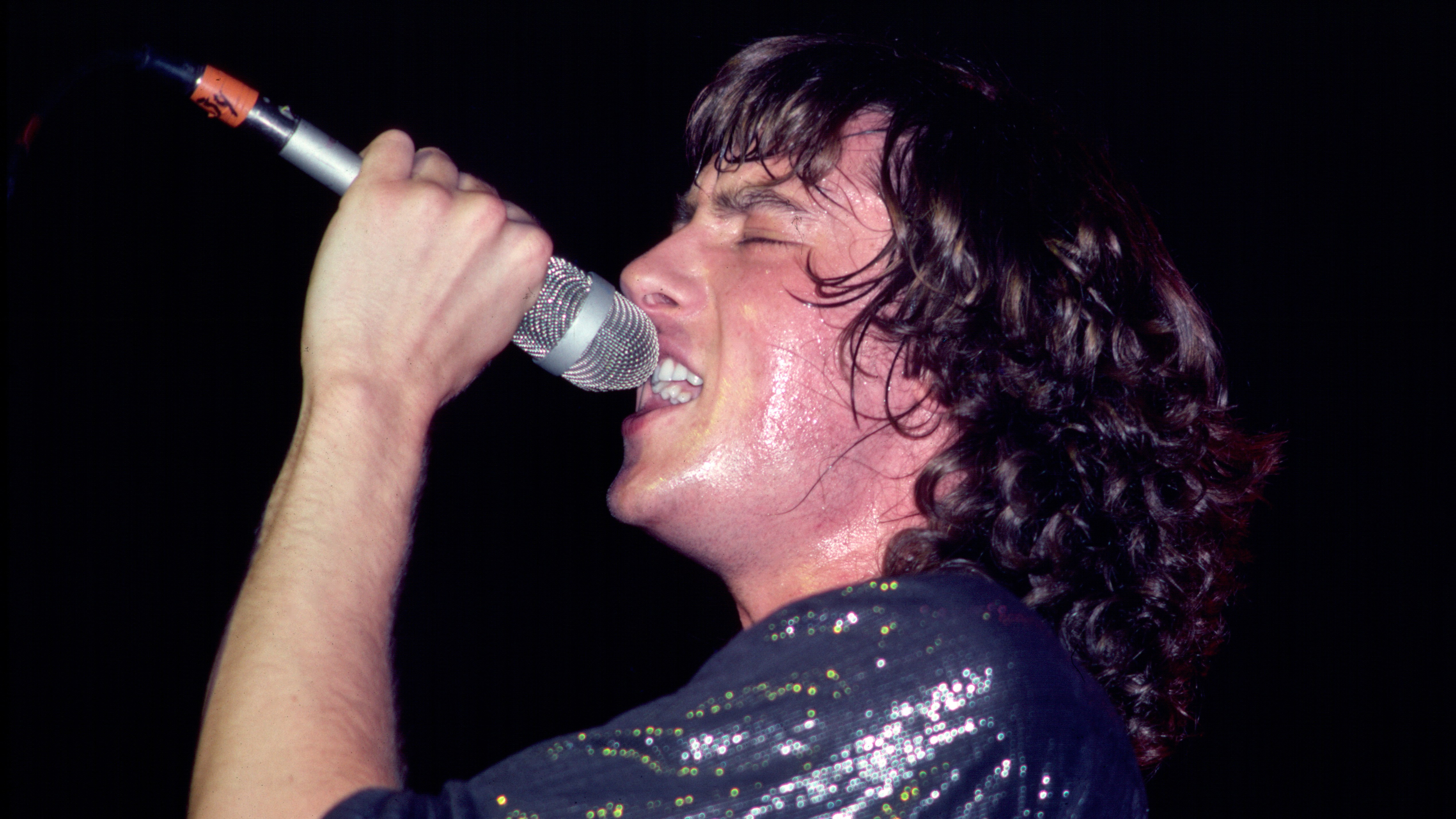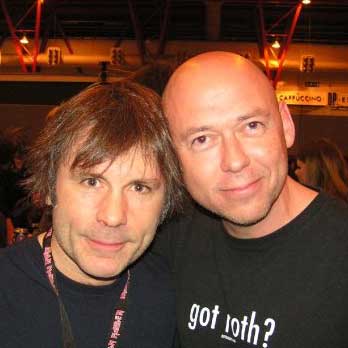“Don’t get too precious about your songs. We’re probably going to tear them apart”: Legendary producer Mutt Lange’s first words to the young Def Leppard
How Leppard's 'sixth member' took them to a new level

Want all the hottest music and gear news, reviews, deals, features and more, direct to your inbox? Sign up here.
You are now subscribed
Your newsletter sign-up was successful
Def Leppard singer Joe Elliott remembered very clearly the first conversation that the band had with Mutt Lange when the producer started work on their second album High ‘n’ Dry.
“Don’t get too precious about your songs,” Lange said. “We’re probably going to tear them apart.”
As Elliott recalled, “We didn’t really know what Mutt meant when he said that. But pretty quickly, we found out.”
Lange pushed them hard in the making of High ‘n’ Dry.
It was the album in which Def Leppard came of age — Joe Elliott most of all.
Leppard had wanted Lange for their debut album, On Through The Night. They knew, even then, that he was the best producer in the business, not only for his work on AC/DC’s hard rock masterpieces Highway To Hell and Back In Black, but also for the pop instincts he applied to two hits from 1978 — The Boomtown Rats’ chart-topping Rat Trap and City Boy’s 5.7.0.5.
The problem for Leppard, in September 1980, was that they were ready to cut High ‘n’ Dry, and Lange was not.
Want all the hottest music and gear news, reviews, deals, features and more, direct to your inbox? Sign up here.
The producer, a renowned perfectionist, was still putting the finishing touches to the Foreigner album 4.
“We just had to wait,” Joe Elliott said. “Mutt was taking forever and a day with that Foreigner record.
“And so, even though we’d had a top 20 album in the UK and toured all over the States with Ted Nugent and the Scorpions and Judas Priest, we ran out of money. I ended up working on a building site that winter, just to pay the bills.”
In the end, it was in the first weeks of 1981 that the band got together with Lange at a rehearsal room in London to begin honing the material for High ‘n’ Dry.
As bassist Rick Savage said: “Having Mutt on board for the first time, it all took on a much more professional attitude. We spent a lot of time in pre-production, just preparing the songs.
“Seeing Mutt’s work ethic and ideas — wow! You really felt that you were stepping up another level or two.”
Lange had warned them in advance that he was a harsh critic.
A couple of songs required only minimal changes. “We played him Lady Strange and he loved it,” Elliott said. And a ballad remained intact save for a modified lyric to fit a new title: A Certain Heartache becoming Bringin’ On The Heartbreak.
The song that Lange tore apart, more than any other, was the one that would serve as the album’s high-energy opening statement.
As Elliott recalled: “When Mutt heard When The Rain Falls, he said, ‘Nah! I hate this lyric. It’s too self-pitying. And the song is too fast — slow it down.’
“We were going, ‘Slow it down? Really?’
“Mutt said, ‘Yeah, let’s get a groove, then try this for a melody…’ And that’s what turned into Let It Go.”
Beginning in March, the album was recorded at Battery Studios in Willesden Green, northwest London.
The process was a steep learning curve for every member of the band.
“There were times when you thought, man, I can’t play it any better than that,” Rick Savage said. “But every time we got a keeper on tape, you thought, I get it – it’s so much better than I thought it could be.
“Mutt pushes you to another level that you didn’t know was in you. And when he does it for five of you, it makes the song. You think, yeah, this guy really knows what he’s doing.”
Lange’s tough-love approach was hardest on Joe Elliott and drummer Rick Allen, the latter still only 17 at that time.
“Mutt was the most wonderful person,” Allen said, “but he made you challenge yourself.
“I questioned my ability as a drummer — whether I could do what he wanted me to do. And he was the same with Joe. For both of us it was very difficult.”
Allen admitted there were times when his frustrations boiled over.
Sticks were thrown, holes punched in walls.
But he came out of it a better drummer.
“Mutt taught me about constant time,” he said. “How to punctuate songs, how to play for the good of the songs, instead of trying to get these licks in.
“It made me look at myself and spend more time practicing, putting the reins on a little bit, knowing when to turn it on and off.”
Equally, it was in the creation of this album that Joe Elliott became a great rock ’n’ roll singer.
“I had to find my voice,” he said, “and it was Mutt who helped me to discover it on High ‘n’ Dry.
“I learnt so much on that record, and most of it was about simplifying things. Mutt was fantastic for me. He wanted to turn me into more of a frontman. Basically, he turned me into the shouty Joe Elliott!”
The band’s two guitarists, Pete Willis and Steve Clark, also upped their game on High ‘n’ Dry.
“They were both great players,” Elliott said. “Steve was more sloppy, but that’s a good thing — the way Johnny Thunders was sloppy, and Jimmy Page was to a point.
“Pete was bit more schooled. His chops with his left hand were bang on.
“With Steve, it was his thought process and his writing that made him so good. He liked to play loose. It if it was a little bit out, it captured a vibe. And that was what Mutt wanted to get from us – a vibe, and a lot more perspiration in the performances.”
Rick Savage agreed. “There wasn’t much overdubbing on High ‘n’ Dry,” he said. “We had all the vocal harmonies on Bringin’ On The Heartbreak, but most of the tracks had just two guitar parts.
“It was all about getting the right performances from us," Savage said. "It was quite a basic album. And it does come across as direct. It’s probably the hardest sounding album that we’ve done.”
Certainly, the strongest influence on High ‘n’ Dry was AC/DC, a band that Def Leppard had long admired, and had toured with in 1979; the band for whom Mutt Lange had produced two hit albums.
And yet, even at this early stage, and even on an album that Rick Savage describes as “basic” and “direct”, there was a sense of sophistication developing in Def Leppard’s music.
“Overall, there’s a similarity to AC/DC on High ‘n’ Dry,” Joe Elliott said. “But it’s more melodic.”
He continued: “AC/DC’s music is more bluesy. It’s easier to read – you can tell what’s coming next. With us, we were pushing our way towards what Queen did on A Night At The Opera.
“The breakdown in Let It Go — “Cool woman, cool eyes…” — you’d never in a million years hear that on an AC/DC album. But you might hear it on a Queen album.”
Similarly, AC/DC never recorded anything like the tracks that were linked on High ‘n’ Dry as two halves of one whole: Bringin’ On The Heartbreak, so slick and perfectly measured, and Switch 625, the adrenaline-charged instrumental created by Steve Clark.
Released on 11 July, 1981, High ‘n’ Dry reached No.26 on the UK chart, a disappointment after On Through The Night had made No.15.
In the US, there was significant progress, as the album breached the top 40 on the Billboard chart, aided by MTV picking up on the video for Bringin’ On The Heartbreak.
And in the British music press, there was one review in which the power of High ‘n’ Dry was conveyed in wonderfully over-the-top fashion.
The influential Sounds writer Geoff Barton had been a key supporter of Def Leppard, only to then accuse the band of selling out when they signed a major deal, and to dismiss On Through The Night as weak.
Barton’s review of High ‘n’ Dry set the record straight.
“I realise now that I wrote off Def Leppard prematurely, cruelly and unnecessarily,” Barton conceded. “High ‘n’ Dry justifies my early faith in the band.
“It really is a five star studded, senses-shattering sensation.”
Barton’s conclusion was right on the money.
“High ‘n’ Dry finds the Def Ones back on course,” he stated, “and heading for a position amongst the hard rock hierarchy.”

Paul Elliott has worked for leading music titles since 1985, including Sounds, Kerrang!, MOJO and Q. He is the author of several books including the first biography of Guns N’ Roses and the autobiography of bodyguard-to-the-stars Danny Francis.
You must confirm your public display name before commenting
Please logout and then login again, you will then be prompted to enter your display name.
